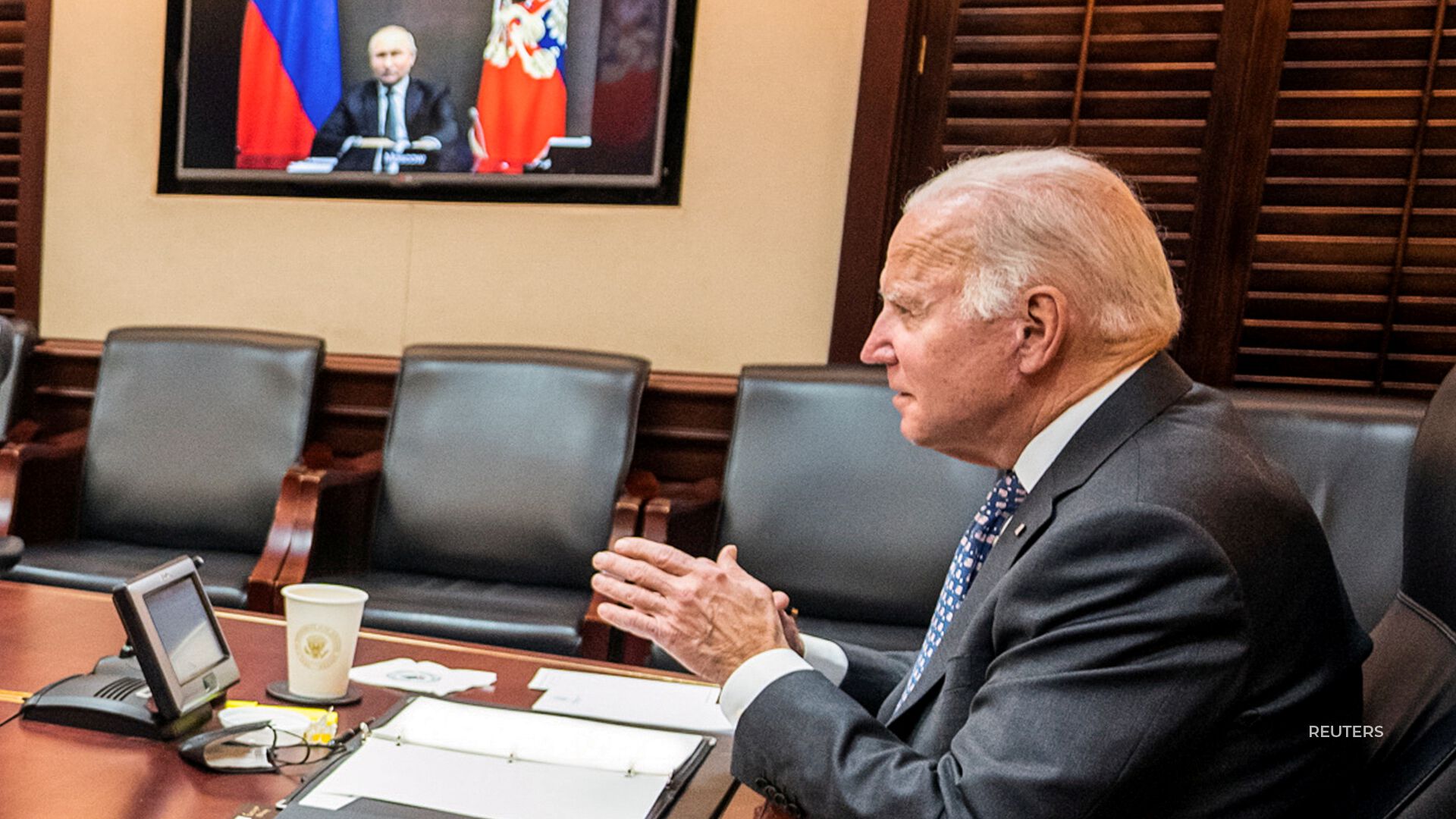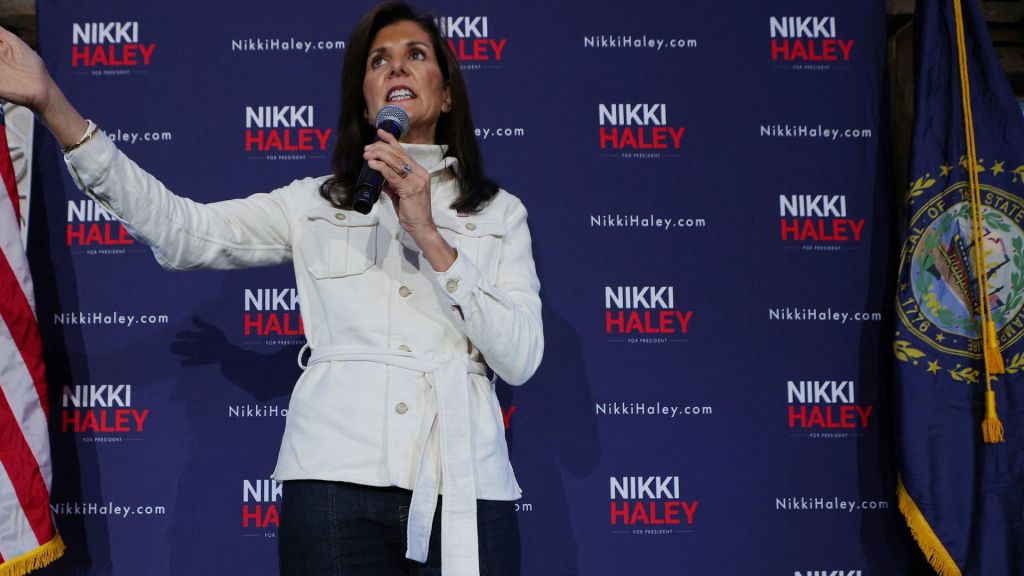Update (Dec. 29, 2021): National Security Council spokeswoman Emily Horne announced Wednesday that President Joe Biden will speak with Russian President Vladimir Putin Thursday about, among other things, Russia’s demands for security guarantees in Eastern Europe. According to Horne, this is just part of “a range of topics that will be discussed.”
“The Biden administration continues to engage in extensive diplomacy with our European Allies and partners, consulting and coordinating on a common approach in response to Russia’s military build-up on the border with Ukraine,” Horne said in a statement announcing the meeting. “President Biden has spoken with leaders across Europe, and Biden Administration officials have engaged multilaterally with NATO, the EU, and the OSCE.”
The announcement came on the same day Secretary of State Antony Blinken spoke with Ukrainian President Volodymyr Zelenskyy.
“Secretary Blinken reiterated the United States’ unwavering support for Ukraine’s independence, sovereignty, and territorial integrity in the face of Russia’s military buildup on Ukraine’s borders,” State Department spokesman Ned Price said in a statement. “The two discussed efforts to peacefully resolve the conflict in eastern Ukraine and upcoming diplomatic engagements with Russia.”
Update (Dec. 28, 2021): According to a Biden administration spokesperson, the meeting between United States and Russian officials regarding Russia’s security demands is set for Jan. 10. The spokesperson also said Russia and NATO were also likely to hold talks on Jan. 12. A broader meeting including Moscow, Washington and other European countries is set for Jan. 13.
“When we sit down to talk, Russia can put its concerns on the table, and we will put our concerns on the table with Russia’s activities as well,” the spokesperson said. “There will be areas where we can make progress, and areas where we will disagree. That’s what diplomacy is about.”
Update (Dec. 22, 2021): Russia Foreign Minister Sergey Lavrov announced Wednesday that Russian negotiators will meet with the United States over Russia’s security demands next month. Lavrov also said Russia will have separate talks with NATO and the Organization for Security and Cooperation in Europe to discuss the same issue.
“We don’t want a war,” Lavrov said Wednesday. “We don’t want to take the path of confrontation. But we will firmly ensure our security using the means we consider necessary.”
On Tuesday, Secretary of State Antony Blinken said Washington is working with its European allies to address what he called “Russian aggression” with diplomacy. Blinken added that Biden opposes the kind of guarantees sought by Putin.
Update (Dec. 21. 2021): A day after officials from Russia urged the United States to respond to the list of demands Russia had published last week, Russian President Vladimir Putin reiterated that urgency at a meeting with Russia’s top military brass Tuesday. One of those demands was NATO roll back its military deployments in Central and Eastern Europe. Putin said is missile systems appear in Ukraine, it will take those missiles only minutes to reach Moscow.
“For us, it is the most serious challenge — a challenge to our security,” Putin said. He also noted NATO has expanded eastward since the late 1990s.
“What is happening now, tensions that are building up in Europe, is [U.S. and NATO’s] fault every step of the way,” Putin said. “Russia has been forced to respond at every step. The situation kept worsening and worsening, deteriorating and deteriorating. And here we are today, in a situation when we’re forced to resolve it somehow.”
Update (Dec. 20. 2021): Just days after Russia published a draft of their security demands to the United States and NATO, Russia urged the U.S. to provide a response Monday. Russia once again warned of a possible military response unless it saw political action. A Russian diplomat said relations between Moscow and NATO had reached a “moment of truth”.
“The conversation needs to be serious and everyone in NATO understands perfectly well despite their strength and power that concrete political action needs to be taken, otherwise the alternative is a military-technical and military response from Russia,” Konstantin Gavrilov was quoted as saying by RIA news agency. Meanwhile, Russian said Deputy Foreign Minister Sergei Ryabkov said Russia had not received a response from the U.S.
“I think they’ll try to turn this into a slow-moving process, but we need it to be urgent, because the situation is very difficult, it is acute, it tends to become more complicated,” Ryabkov was quoted by RIA as saying.
U.S. officials have said they will respond some time this week with more concrete proposals on the format of any future talks between the U.S. and Russia.
Original Story (Dec. 17, 2021): Russia published a draft of their security demands to the United States and NATO Friday. The demands, contained in a proposed Russia-U.S. security treaty and a security agreement between Moscow and NATO, were submitted to the U.S. and its allies earlier this week. Russia’s demands include:
- Denying NATO membership to Ukraine and other former Soviet countries
- Rolling back NATO’s military deployments in Central and Eastern Europe
- A ban on sending U.S. and Russian warships and aircraft to areas from where they can strike each other’s territory
- A halt to NATO military drills near Russia
“Washington and its NATO allies need to immediately stop regular hostile actions against our country, including unscheduled war games, dangerous encounters and maneuvers of military ships and planes, and end the military absorption of Ukrainian territory,” Russian Deputy Foreign Minister Sergey Ryabkov said at a Friday news conference.
The publishing of the Russian demands comes a day after NATO said it rejects, “the false Russian claims of Ukrainian and NATO provocations.”
“We call on Russia to immediately de-escalate, pursue diplomatic channels, and abide by its international commitments on transparency of military activities,” NATO said in a statement Thursday.
In Friday’s briefing, Ruabkov said Russia was ready to meet with the U.S. about the demands as early as Saturday. His comments come just over a week after President Joe Biden and Russian President Vladimir Putin met virtually to discuss a variety of issues, including Ukraine.
“We are ready to immediately travel, starting from tomorrow, 18 December, for negotiations with the United States in a third country. We have already proposed Geneva to the Americans as a place to launch these crucial negotiations,” Ryabkov said. “We propose writing down that the U.S. and Russia don’t view each other as opponents and will use bilateral and multilateral consultations to resolve conflicting situations.”
Following the announcement, NATO Secretary-General Jens Stoltenberg issued a warning regarding a potential U.S/Russia meeting on Russian demands. The video above shows Stoltenberg speaking at a news conference. He said “we are clear that any dialogue with Russia” must do the following:
- Address NATO’s concerns about Russia’s actions
- Be based on the core principles and documents of European security
- Take place in consultation with NATO’s European partners, such as Ukraine
“NATO allies have also made clear that should Russia take concrete steps to reduce tensions, we are prepared to work on strengthening confidence building measures,” Stoltenberg said.
The White House said it’s discussing the Russian demands with its allies. However, the White House also noted all countries have the right to determine their future without outside interference. The video above also shows National Security Adviser Jake Sullivan discussing the negotiations with Russia.







